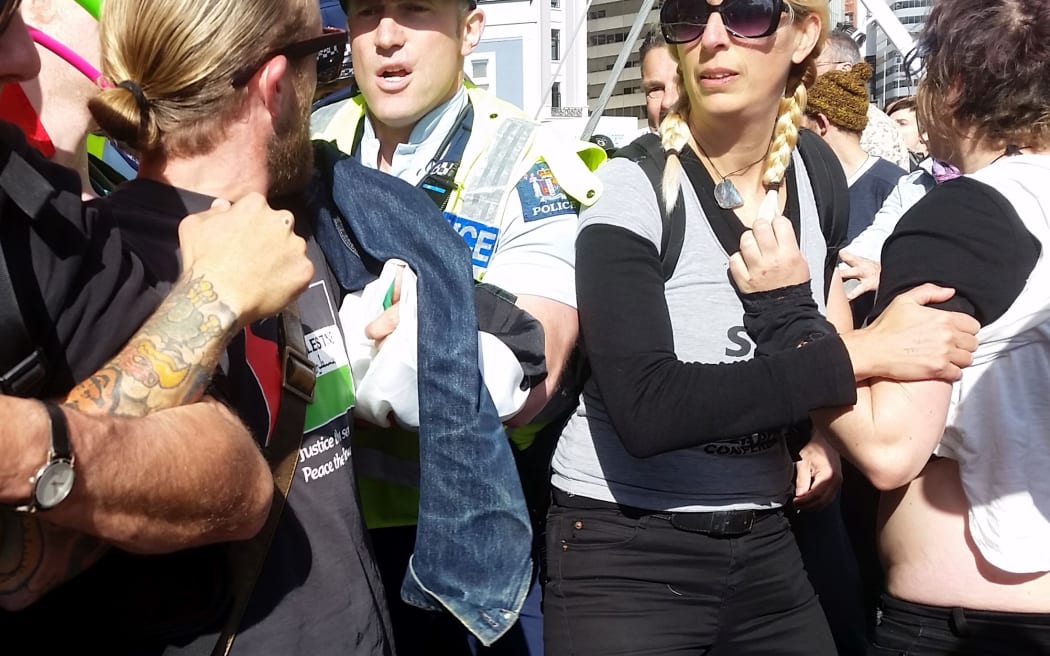The last peace activist facing charges as a result of a protest at a defence industry conference in Wellington has been found not guilty of trespass.

Protesters clash with police at the Defence Force protest. Photo: RNZ / Kate Gudsell
Judge Ian Mill delivered his verdict in the Wellington District Court this morning.
Laura Drew was one of 16 people charged as a result of the protest in 2015, accused of obstructing police and of wilful trespass outside the Defence Industry Association Conference.
Since the trial began at the start of last week, the number of defendants has steadily dwindled, with the judge dismissing some charges as discrepancies showed up between evidence given by Crown witnesses and the depiction of events shown in video played to the court.
Ms Drew was arrested after she and three others chained themselves to a door in the carpark underneath the conference venue.
The group were approached by the police and asked to leave, but the protesters did not engage with them or unlock the chains and leave of their own accord.
Police eventually used boltcutters to remove the chains.
In an earlier case, the High Court had ruled that a person must "become a trespasser" before they could be warned to leave.
The court ruled that in some cases a person might have to be given two rulings to leave before they could be arrested.
Judge Mill ruled today that police did have authority to remove Ms Drew from the carpark and had told her if she did not leave she would be trespassing, but he said she was then arrested without further warning.
"While I find it reasonable and lawful for the police to cut [her] free and then require [her] to leave, and arrest if they did not do so within a reasonable time, the evidence is that this did not occur.
"While it could be inferred she had no intention to leave, there was no warning or opportunity to do so. The evidence therefore does not satisfy me there was a warning [as described in the earlier High Court case] and the charge is not proved and [is] therefore dismissed."
Outside the court, Emma Cullen from Peace Action Wellington said she believed police had used the case to punish the protesters and deter them from further activism.
She said the evidence the police produced was "pretty flimsy".
"They accused us of a lot of things and nothing stuck. As soon as the videos were shown all the charges seemed to drop every day. If they really had evidence we were committing a crime then how come none of us have been found guilty?"
Ms Cullen said the trial process had caused financial stress to those involved.
But she said it would not deter them from further protest, especially as new figures showed the global arms trade was at its highest since the Cold War.
"We have to be out there because the real criminals on the day were those in the building trying to sell weapons and make money from war so we're not going to stop."
Police have not commented on the lack of convictions in the case.
A costs application against police has been filed by the veteran Wellington protester Valerie Morse, and will be dealt with next month.


